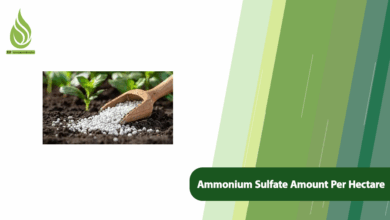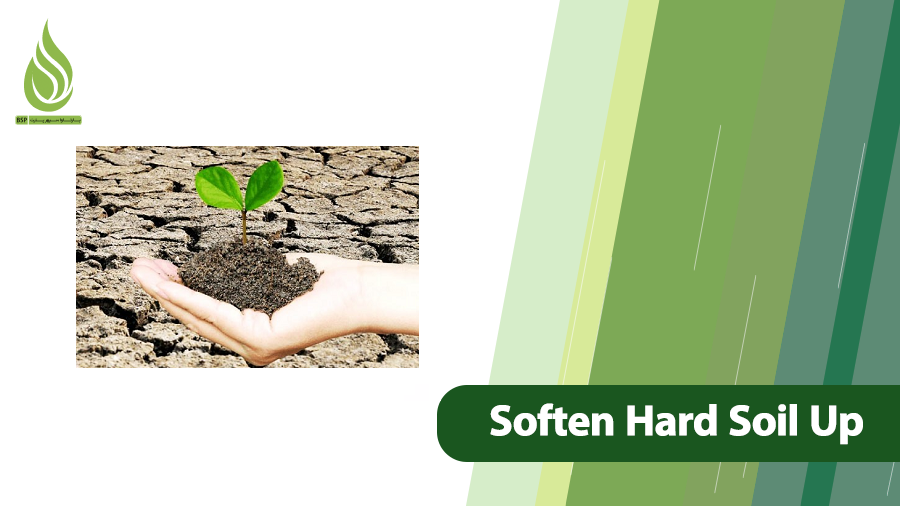
Is Your Soil Hard and Clumpy? Here’s How to Soften It Up
Hard, clumpy soil makes it tough for plants to grow. But don’t worry! With practical solutions, you can soften and improve compacted soil. In this guide, we’ll explain why soil gets clumpy and share effective ways to soften it. Let’s dive in!
How Can You Tell If Your Soil Is Hard?
Compacted soil happens when soil particles are pressed tightly together with little space between them. This reduces the gaps needed for air, water, and roots to move freely, causing several issues. Compacted soil not only stunts plant growth but also lowers crop quality.
Here are signs your soil might be too hard and needs fixing:
- Poor plant growth
- Water pooling on the surface after watering
- Surface cracking in the summer
- Difficulty digging with a shovel or trowel
- Shallow, weak roots that can’t penetrate deep
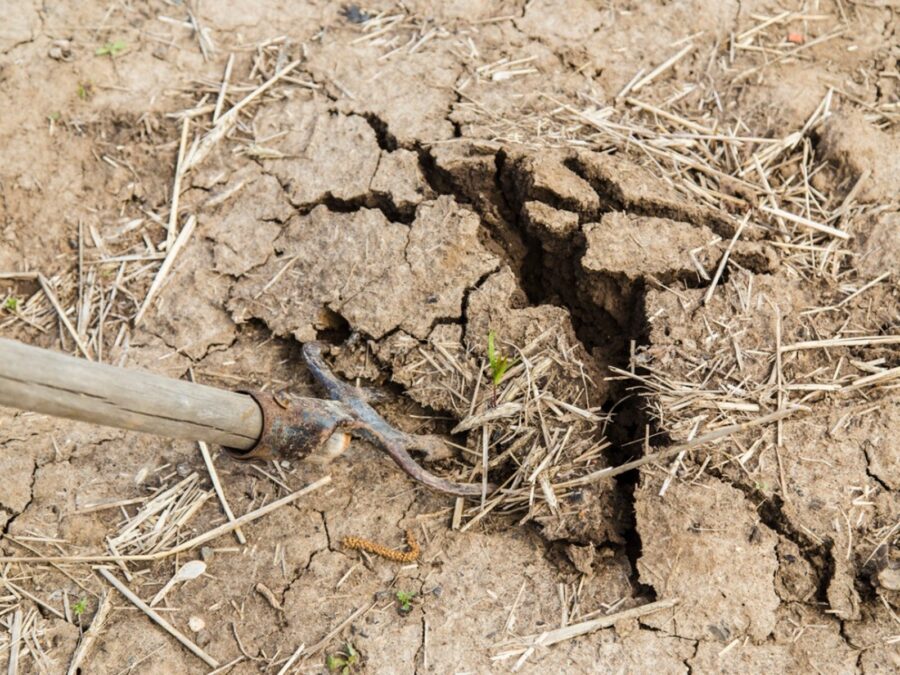
Why Is Compacted Soil a Problem?
Hard, dense soil blocks water and air from moving through it. Plant roots need to spread easily to grow strong, but compacted soil stops them, slowing root development. When roots can’t grow well, plants absorb less water and nutrients, leading to weak growth.
Another issue is that water can’t soak into hard soil easily. This leaves plants thirsty, as water either sits on the surface or collects in one layer, further damaging the soil structure. Excess water around roots can also suffocate them or cause root rot. To avoid this, you’ll need to take steps to prevent and treat root rot.
Compacted soil also causes other headaches for gardeners and farmers:
- More effort is needed for tilling
- Lower crop yields
- Loss of beneficial soil microorganisms
- Reduced oxygen in the soil
- Less earthworm activity
- Poor nutrient absorption
- Higher risk of soil-borne diseases (like fungal or bacterial root infections)
To prevent these problems, you need to take action to improve your soil.
What Causes Soil to Get Hard?
Soil can become compacted for several reasons:
- Heavy machinery traffic on the land
- Frequent foot traffic
- Improper watering or heavy rainfall
- Incorrect tilling (especially when soil is wet)
- Lack of organic matter (without enough organic material, soil particles clump together and harden)
- Poor soil aeration
- Rapid drying or moisture loss
- High clay content in the soil
These factors squeeze soil particles together, making it harder for roots, water, and oxygen to reach deeper layers.
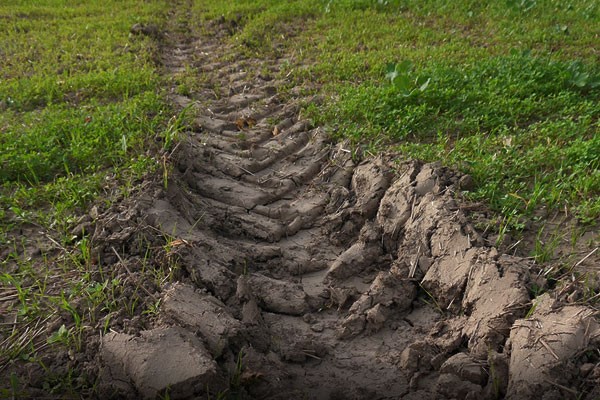
Preventing Soil Compaction: A Smart and Sustainable Approach
Prevention is always better than a cure, especially when dealing with sensitive soils prone to compaction, like clay-heavy ones. These soils compact easily due to their fine texture and can quickly become unsuitable for growing plants if not managed carefully.
By treating your soil with care and knowledge, you can keep it from hardening and turn it into a rich, productive resource. A healthy soil is the first step toward a healthy harvest.
To prevent soil compaction, follow these key practices:
- Limit heavy machinery traffic on fields, especially when the soil is wet.
- Use proper tillage techniques based on climate, season, and soil type.
- Boost soil organic matter with compost, manure, or plant residues.
- Practice crop rotation and diversify plantings to maintain soil’s biological cycle and prevent structural breakdown.
Effective Ways to Soften Hard Soil
If your garden or field soil is already hard and clumpy, don’t stress. Here are practical methods to soften it up.
Deep Tillage to Loosen Soil
Before planting season, during field preparation, perform deep tillage. The ideal tillage depth is about 8 to 12 inches. Use tillage equipment rather than heavy tractors, as heavy machinery can further compact the soil.
Avoid tilling when the soil is too wet or too dry. Tilling once a year is usually enough. You can also use soil cultivators to improve soil texture. These tools break up clumps and soften the soil. Aeration tools are another great option for removing clumps and loosening soil.
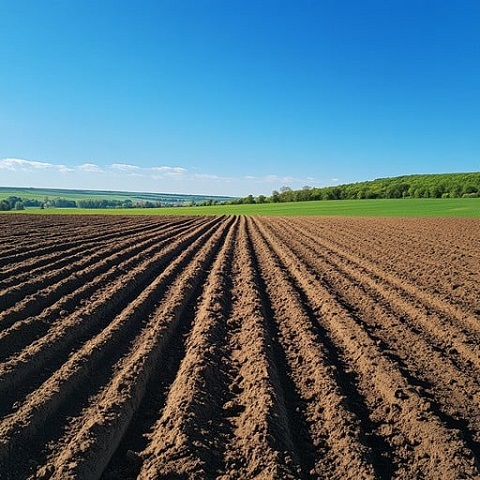
Fertilizing to Reduce Soil Compaction
Certain minerals can improve the condition of clay-heavy or compacted soils. A lack of nutrients like nitrogen, phosphorus, sulfur, or calcium can alter soil structure. To fix this, test your soil to identify deficiencies. Soil test results will show which nutrients are needed and in what amounts.
One effective fertilizer for softening soil is sulfur. Sulfur lowers the pH in alkaline soils, making nutrients more available to plants. Ammonium sulfate fertilizer, which supplies nitrogen and sulfur, promotes root growth and improves soil structure. Humic acid, high-phosphorus fertilizers, and poultry manure are also great for amending heavy, clay soils.
Adding Organic Matter to Soften Soil
A major cause of soil compaction is low organic matter. Adding organic materials can significantly soften soil.
Organic matter improves soil structure, increases moisture retention, and boosts microbial activity. The best organic materials for softening soil include:
- Compost
- Vermicompost
- Animal manure
- Shredded leaves, straw, or crop residues
- Green manure (cover crops)
- Seaweed
- Leaf mold
Mulching prevents water evaporation and keeps soil from hardening. Use straw, crop residues, sawdust, or shredded leaves as mulch. Mulching reduces clumping, cuts down on watering needs, and supports soil microorganisms.
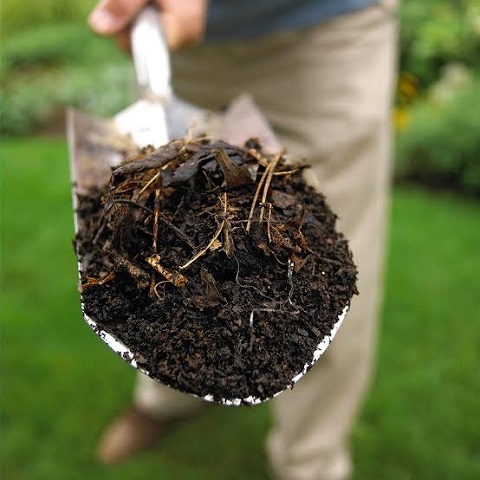
Proper Watering
Watering correctly and consistently plays a big role in softening soil. For compacted soil, use frequent, light watering. Avoid flood irrigation if possible. Drip or sprinkler irrigation systems are great for maintaining moisture and preventing soil from drying out.
Softening Soil with Cover Crops
Planting cover crops like alfalfa, clover, or rye improves soil structure and reduces compaction. The roots of these plants loosen soil and add nutrients. Growing cover crops and then turning them into the soil as green manure is an excellent way to soften it. Some of them are even nitrogen fixing plants.
Mixing Sand with Clay Soil
If your soil is heavy clay and sticky, adding sand along with organic matter can lighten it. A good ratio is one part sand, one part compost, and two parts clay soil.
In this section, we’ve covered effective ways to soften agricultural soil. Choose the best methods based on your soil and plants’ specific needs, and enjoy the benefits of healthier soil.
Combining Methods for Better Results
The most effective way to soften soil is to combine physical, biological, and chemical approaches:
Tillage + adding organic fertilizer + using ammonium sulfate + applying necessary mineral fertilizers + mulching + proper watering = soft, fertile, and vibrant soil
